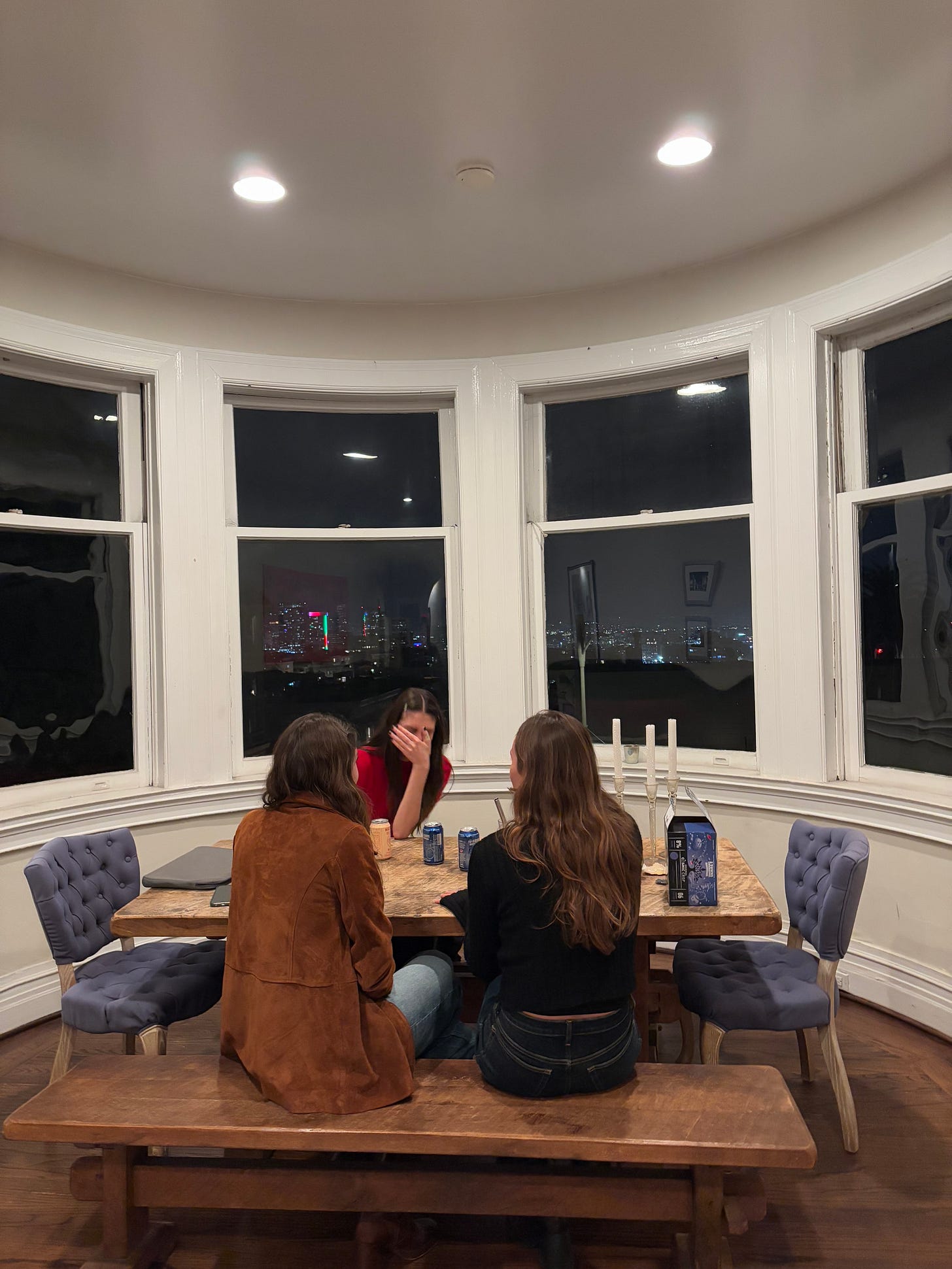Conversations with Friends
Miranda July makes a sexy, cool and compelling case for asking for help
I might have a weak gut since trusting it seems so hard to do. What should I write back? Do you think I should go? What seems like the better option? Is this normal? What do YOU think I should do? Posing these lofty questions nonchalantly to friends (read: close friends) on a Tuesday — in Dimes Square — feels abrasive, and jarring. My next question should probably be, is it selfish (borderline narcissistic) to pull up to drinks, unload and divulge, and (here’s the kicker) plead for any sort of an answer? Or is that what friends are for?
At my lowest of points, I’ve associated this tendency with there being a deeper problem within myself — attributing my lack of decisiveness to be a sign of my lack of unique personhood. Who even am I if I can’t make decisions for myself? It seems like the most logical answer. If I can’t trust my own judgement, how can I really call myself independent, individualistic? Am I just a cog in the machine? Am I being too hard on myself? (My therapist would, with no question, say yes).
I didn’t expect a lot of things from reading Miranda July’s All Fours. In a good way. I went in totally blind. So [SPOILER] here are some things I REALLY did not expect.
I did NOT expect Miranda July’s protagonist to sleep with her former lover's lover in an attempt to satiate her sexual cravings. Nor did I think that July would interrogate with her readers the performative nature of Instagram as a platform where the human mating call is literally the click of a button (read: “post”). But what truly kept me up at night — had my brain tugging at itself— and what All Fours opened my eyes to, is the complexity and ageless phenomenon of self-discovery, the art of inquisition and the — perhaps — universal desire to ask for answers (from numerous, numerous sources).
In her auto-fictional novel, the protagonist confronts her disappointment with her own reality; one she has built up through a series of pragmatic decisions — monogamy and motherhood being just a few. She tempers with the fact that before subscribing to these heteronormative choices, she led a misguided, nonconforming lifestyle. In the spirit of self-rediscovery, July’s protagonist runs away — from everything — and into the arms of a man half her age. She becomes disillusioned by his childish suave, unabashedly naive perspective and his unique form of self-expression: breakdancing.
Through this passionate whirlwind romance, July’s protagonist takes stock of the choices she has made (and must make) in the act of blowing up her life. And this makes sense. This might be the first instance July’s protagonist takes responsibility for her actions — ironically.
She calls on her friends for moral guidance. She asks them intimately about their desires, questions them on if they share the same fears of growing old (or growing boring). These “interviews” the protagonist organizes authenticate the feelings bottled inside her — some even sobering her own unconventional wants. For Miranda July, for her protagonist, and maybe for all of us, the point of questioning is: “I needed to know if my wants were any different or larger than other people’s.” (P.231). Or really, Am I the only one?
In asking for help, oftentimes we start to lean on our own intuition. We stop asking the same questions but the inquisition never stops. We grow — not boring — but more prudent and thoughtful. New questions, richer questions that, in asking them, signals our own development, our own personhood. Through these questions we develop perspective and what it is that is valuable and important to us.
I thank Miranda July for reminding me that self-rediscovery in isolation is a fallacy and that self-actualization is an art form practiced and practiced again through human connection. I’m hoping I’m not losing anyone in making this point. I guess what I’m trying to say is that we only become more ourselves through the questions we ask those around us.



Really beautiful
Amazing Ava